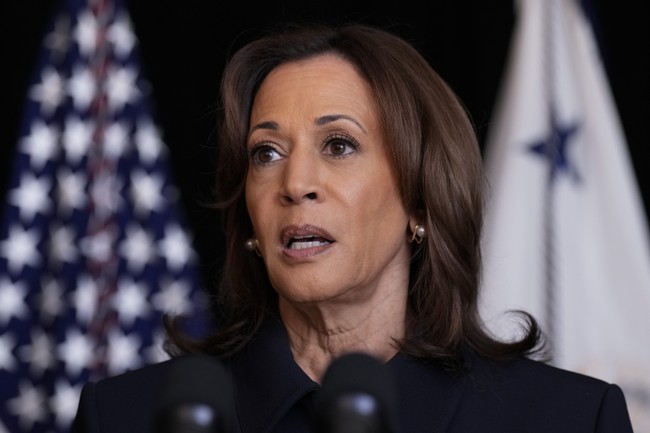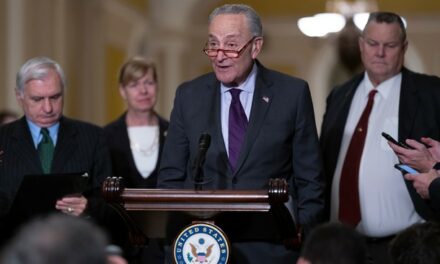We support our Publishers and Content Creators. You can view this story on their website by CLICKING HERE.

Medicare Part A (Hospital Insurance, or HI) is projected to be depleted in 2036. That’s actually an improvement after the Medicare Board of Trustees moved the insolvency date from 2031 to 2036 earlier this year.
Advertisement
This hasn’t stopped Kamala Harris from devising a huge new program to benefit the “sandwich generation.” These are middle-aged couples who are caring for an elderly parent as well as a child under the age of eighteen. It’s a coveted voting bloc because, put simply, they vote more often than any other demographic except those over 65.
Roughly a quarter of Americans are part of this generation, and cornering their support is vital to victory.
The new benefit would cover long-term home care services, including in-home health care aides. Families could spend up to $75,000 a year on home healthcare aides while Medicare only covers part of the costs if the senior is homebound.
At the other end of a voter’s lifespan, Harris is proposing making the pandemic-era child tax credit permanent as well as establishing a $6,000 tax credit for parents of newborns. Harris will unveil the new home care benefit for seniors during her appearance on “The View” on Tuesday.
Harris plans to pay for the new senior home care benefit by expanding Medicare drug price negotiations, increasing discounts for certain brand-name drugs in Medicare that drug companies are required to provide, and reducing hidden costs associated with the middlemen in the drug pricing process known as pharmacy benefit managers, among other measures.
Medicare currently only covers at-home skilled nursing care, home health aides and other kinds of assistance under specific circumstances, leaving families to foot the costs of in-home care on their own.
The issue is also personal for Harris, who has talked on the campaign trail about taking care of her mother, Shyamala, when she was dying of cancer.
Advertisement
Browbeating drug companies to lower the cost of drugs won’t even come close to paying for this new benefit. The Harris campaign is bragging about reducing drug prices for 10 drugs that will supposedly save Medicare $9 billion. The next round of browbeating will include 15 more drugs. This is a program that will cost Medicare at least $40 billion a year, according to the left-wing Brookings Institution.
We can expect that number to climb as the government adds more and more benefits to the program, as is customary with any entitlement.
The Harris campaign claims that the negotiations with Big Pharma will save $100 billion by 2031. But as The Economist points out, there are major drawbacks to government “negotiating” with drug companies that would devastate the industry.
A problem is that they have swung from one extreme to another. Officials will not so much be negotiating the price as setting it. The penalties for companies that do not comply with the negotiation process for a single drug are severe: they will either face an excise tax of 65-95% of the product’s sales in America, or have to withdraw all their medicines from public-health programmes altogether. It is like turning up to a fight where only one side has a gun.
This matters, because setting prices low could harm innovation. Pharmaceutical firms are not earning vast excess profits, considering the risk of their investments. According to research published in 2021, once their spending on research and development is treated as an investment rather than an expense, pharma firms are not making outsize returns compared with the average firm in the S&P 500. If they doubt that they will make a sufficient profit on their investments, they will spend less on finding new drugs. Sure enough, studies suggest that falling revenues hit research and development spending hard.
Advertisement
The Medicare Trustees are going to have to revise their insolvency date for Medicare again.

 Conservative
Conservative  Search
Search Trending
Trending Current News
Current News 







